Digital Underground was an American alternative hip hop group from Oakland, California. Their personnel changed and rotated with each album and tour.
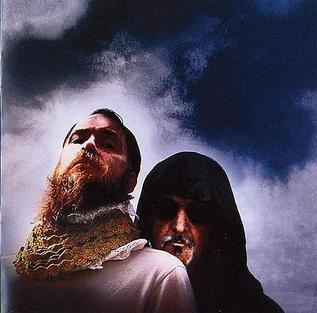
Coil were an experimental music group, founded in 1982 in London, England and concluded in 2005. Initially envisioned as a solo project by musician John Balance, Coil evolved into a full-time project with the addition of his partner Peter Christopherson. Balance and Christopherson were the only constant members; other contributors throughout the band's career included Stephen Thrower, Danny Hyde, Drew McDowall, William Breeze, Thighpaulsandra, and Ossian Brown. Coil's work explored themes related to alchemy, the occult, and sexuality, influencing genres such as goth rock, neofolk, and dark ambient. AllMusic called the group "one of the most beloved, mythologized groups to emerge from the British post-industrial scene."

Spice is the debut studio album by English girl group the Spice Girls. It was released on 19 September 1996 by Virgin Records. The album was recorded between 1995 and 1996 at Olympic Studios in Barnes, London, and Strongroom Studios in Shoreditch, London, by producers Matt Rowe and Richard Stannard, and the production duo Absolute. Spice is a pop album that incorporates styles such as dance, R&B and hip hop. It is considered to be the record that brought teen pop back, opening the doors for a wave of teen pop artists. Conceptually, the album centered on the idea of Girl Power, and the hype surrounding the group was compared to Beatlemania.

Girls About Town is the debut EP by the American rock band The Smithereens. It was released on 31 October 1980 on the band's own D-Tone Records. The EP contains four songs with the word ‘girl‘ in the title, including "Girl Don't Tell Me," a song originally recorded by The Beach Boys.
"Sweet Leaf" is a song by Black Sabbath from their third studio album Master of Reality, released in 1971. It is considered as one of the band's signature songs and was included on their 1976 greatest hits compilation We Sold Our Soul for Rock 'n' Roll.

Miaow is the fourth album by The Beautiful South. It was released in 1994 via GO! Discs.
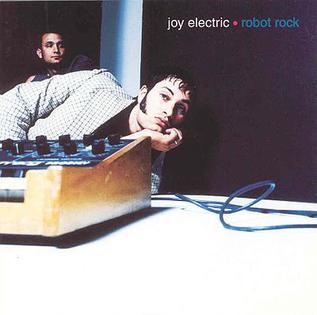
Robot Rock is the third full-length album by Joy Electric, released in 1997. It is the group's best-selling album.

In a Car is the Meat Puppets' first recording. It was originally issued on L.A. art collective/record label World Imitation records as a 5-track 7" EP.
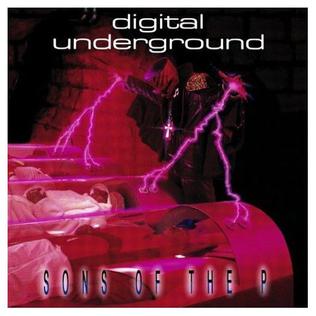
Sons of the P is the second album by American rap group Digital Underground, released in 1991. The album contained two hit singles, "No Nose Job" and "Kiss You Back," both of which were written by and featured the lead vocals of Greg Jacobs. The latter featured multi-layered choruses and background vocals sung by Boni Boyer, who briefly worked with D.U. shortly after her stint with Prince's Sign of the Times/Love Sexy band.

The Body-Hat Syndrome is the third album from the rap group Digital Underground.

Sex Packets is the debut studio album by American hip hop group Digital Underground, released on March 26, 1990.

Beast of the Bonzos is the US version of the UK album The Best of the Bonzos. This American best of album differs from the British in having different cover art, an extra flap with an article about the Bonzos by John Mendelsohn, and about half different songs.
"Take Me to the River" is a 1974 song written by singer Al Green and guitarist Mabon "Teenie" Hodges. Hit versions were recorded by both Syl Johnson and Talking Heads. In 2004, Al Green's original version was ranked number 117 on Rolling Stone magazine's list of the Rolling Stone's 500 Greatest Songs of All Time.
Wammo is an album by New Zealand band Bailter Space, released in 1995. Matador will reissue the album on vinyl for its 25th anniversary.
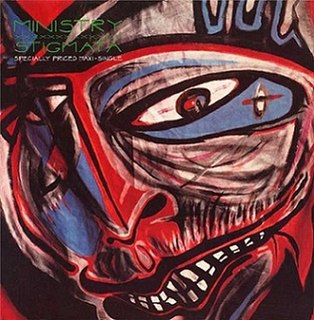
"Stigmata" is a song by American industrial metal band Ministry. Written by Al Jourgensen, it is the opening track and the only single released from their third studio album, 1988’s The Land of Rape and Honey. The song features distorted vocals, guitars and compressed drum machine loops. The song was an underground hit. The music video—which was said to get a regular airing on MTV—features gritty black and white machinery, gears, symbols, the band playing live, Paul Barker on a motorcycle, strobe-like montages of eyes, and what appear to be neo-Nazi skinheads. The song was said to be Ministry's "finest moment until 1992".
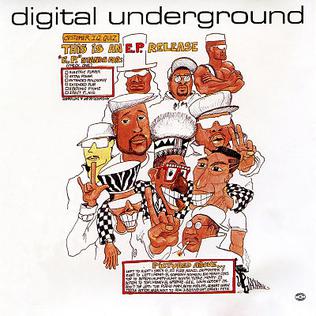
This Is an EP Release is the RIAA gold-certified EP by Digital Underground, from which "Tie the Knot" and "Same Song" were featured in the film Nothing But Trouble, starring Dan Aykroyd, Chevy Chase, Demi Moore and John Candy. "Tie the Knot" contained jazz-influenced piano tracks and a comedic interpretation of "Bridal Chorus" and "Same Song" contains an organ solo and improvised organ sections throughout the song, similar to The ULTRAMAGNETIC MC’s, whose song “Ego Trippin’” in 1988, produced by Ced Gee, who was the first to use an E-mu SP1200 to chop samples and use live instrumentation, with contributions from musician Keyboard Money Mike. It was one of hip hop's first singles to successfully integrate live instrumentation with music samples. Tupac Shakur made his debut on the latter song, and portrayed an African king in the video. Tupac also can be heard on "The Way We Swing" (Remix) as a background vocalist, adding humorous ad-libs between the verses.
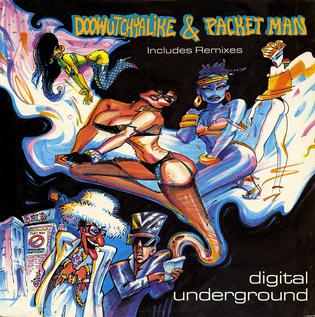
"Doowutchyalike" is a song performed by Digital Underground. The song was released independently by the group in 1989 and later included on their debut studio album Sex Packets. Produced and co-written by group leader Shock G, the song peaked at #19 on the Billboard rap chart in 1990.
Electronic rock is a music genre that involves a combination of rock music and electronic music, featuring instruments typically found within both genres. It originates from the late 1960s, when rock bands began incorporating electronic instrumentation into their music. Electronic rock acts usually fuse elements from other music styles, including punk rock, industrial rock, hip hop, techno, and synth-pop, which has helped spur subgenres such as indietronica, dance-punk, and electroclash.
Martin + Me is a solo album by J Mascis, his first. It was released in 1996.
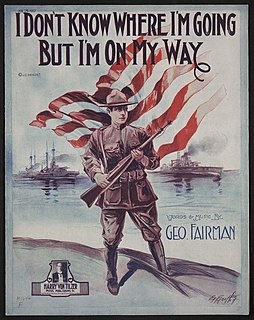
George Wayne Fairman (1881–1962) was a lyricist, composer, and music publisher whose work includes popular songs. Several of his songs charted including two that reached #1. Fairman's work includes coon songs, ragtime, songs related to World War I, and a foxtrot.













